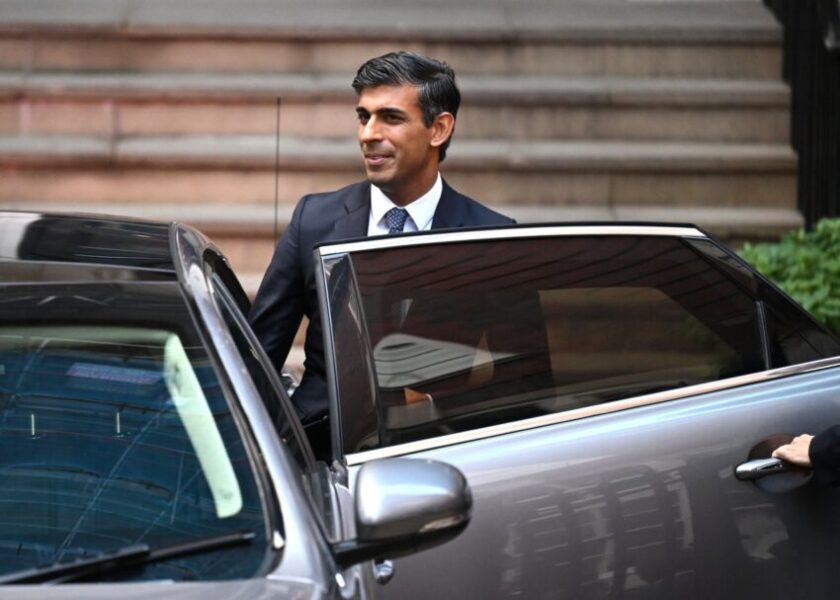
The UK is lobbying the EU over a Brexit trade deal deadline that carmakers have warned pose a threat to UK industry.
Prime Minister Rishi Sunak said the UK was “engaged in a dialogue” with the EU about a looming rule change that could affect UK electric car hopes.
Carmakers in Britain and the EU have been asking for the rule change to be pushed back.
The company has previously committed to making electric vans in the UK, but now says these plans are under threat.
It has warned it could face tariffs of 10% on exports to the EU due to rules on where parts are sourced from.
From next year, 45% of the value of an electric vehicle should originate in the UK or EU to qualify for trade without tariffs. This percentage will rise again in 2027.
Stellantis said it was “now unable to meet these rules of origin” due to the recent surge in raw material and energy costs.
Europe’s car trade body, the European Automobile Manufacturers Association, has also asked the EU to extend the deadline, arguing that the supply chain is not ready.
Speaking to reporters on a trip to Japan, Mr Sunak the approaching deadline was “something that car manufacturers across Europe, not just in the UK, have raised as a concern”.
“And as a result of that we are engaged in a dialogue with the EU about how we might address those concerns when it comes to auto manufacturing more generally,” he added.
UK car giant warns Brexit may force factory closure
Mike Hawes, chief executive of UK trade body, the Society of Motor Manufacturers and Traders (SMMT), said he hoped “some degree of common sense would prevail”.
“It doesn’t need a full renegotiation of the Brexit deal, it just needs an agreement that you won’t impact some of the rules that were due to change next year.” he told the BBC’s Today programme
“It’s hard to see how you can make sure that your plant is competitive for the long term if you’re facing these additional costs. It undermines the investments either that have been made or potentially will be made.”
Industry experts have expressed concern that the UK is running out of time to develop its own battery manufacturing industry, given heavy investment being made in the US, China and the EU.
Mr Hawes said the UK had not missed the boat yet, “but the boat has got its engines fired up, ready to go”.
“What we’ve seen over the last few years is these massive investments being made in terms of gigafactories and indeed product allocation. That window isn’t shut, but it’s closing.”